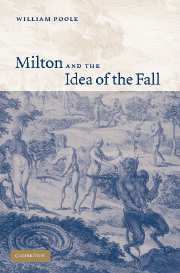Introduction
Published online by Cambridge University Press: 10 December 2009
Summary
[I]f I have spoken any thing, or shall hereafter speake in this Pamphlet vnaduisedly, illiterately, without good order or methode; acknowledge (I beseeche thee) the generall punishment of whole mankinde, which more especially discouers it selfe in my weaknesse, the confusion of tongues. I am confounded, I am confounded, poore silly wretch that I am, I am confounded, and my minde is distracted, my tongue is confounded, and my whole nature corrupted …
This – slightly disingenuous – apology for bad prose was written in 1616 by the future bishop of Gloucester and crypto-Catholic, Godfrey Goodman, some way into his stout quarto on the effects of original sin, The Fall of Man; or, the Corruption of Nature. Goodman here pauses in his general narration of woe to lament his own inarticulacy, tracing this first to ‘the confusion of tongues’ that took place at Babel, but, behind that, with his ‘whole nature corrupted’, to the Fall of man itself, the primal transgression of Adam and Eve in Eden as recorded in Genesis 2–3. Goodman thus adds to his catalogue of human ills not merely the conviction that man's linguistic capacity has become crippled – his ability to describe accurately, and then subsequently to report such descriptions to others – but also the corruption of his very physical and moral fabric.
- Type
- Chapter
- Information
- Milton and the Idea of the Fall , pp. 1 - 6Publisher: Cambridge University PressPrint publication year: 2005



